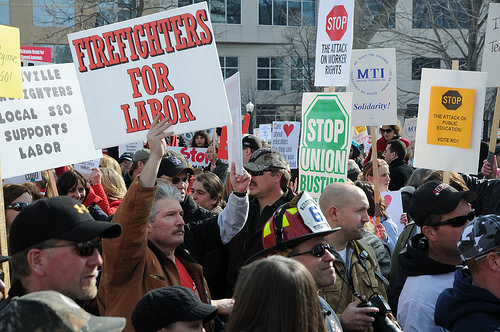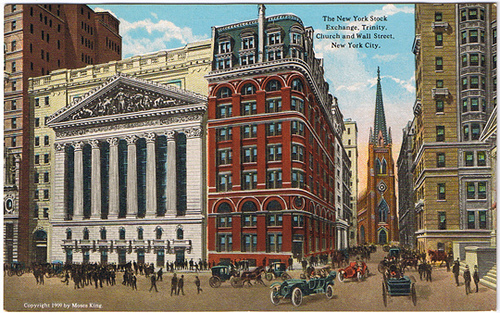
(photo credit: marctasman)
State governments around the country are facing serious budget deficits, and something needs to be done. But unionized workers in Wisconsin, Ohio, and Indiana are pretty sure that that something shouldn’t include eliminating their right to organize.
- Republican-sponsored bills in the three states propose to chip away at budget deficits by limiting or eliminating the power of private and public-sector workers to unionize.
- Most of the bills would curtail the right to collective bargaining. This is the process by which a group of employees in a particular company or industry can negotiate with business owners for better pay, improved working conditions, or greater job security (among other things).
- Collective bargaining was critical to reform in an era when children worked in factories and most workers were glorified indentured servants. Today, opponents say it’s unnecessary and costly. Supporters argue that without it, they are at risk of the same historical abuses that led to the union movement in the first place.
Facts & Figures
- The Wisconsin bill would save the state an estimated $300 million over two years
- The state’s budget deficit for that period is approximately $3.6 billion
- Tens of thousands of protesters have packed the capitals of the three affected states in recent weeks
- In Wisconsin, Democratic legislators actually fled the state to prevent the budget bill from being passed
Best Quote
“Governor Kasich decided he wants to squash unions and found a creative way to do it, but he has to realize that we’ve fought this battle before and he will not stop us because we will fight to the very end.” – JoAnn Johntony, President of the Ohio Association of Public School Employees
What do you think?
Are unions still necessary? Do you know anyone who is a member of a union?
Is limiting the right to collective bargaining a good long-term solution for these states, or a quick fix?
Get to it!
Union disagreements aren’t limited to factory workers, firefighters, and public school teachers. Check out Amy’s explanation of a potential strike of NFL players here.



